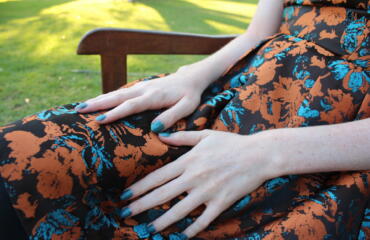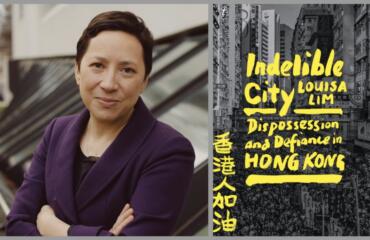
Darcy is just an average teenager. He’s bubbly and warm, and makes his friends laugh constantly.
Darcy was also born as Dina but now, at 15, has come to recognise that he identifies as transgender.
In fact, he describes himself as non-binary. He doesn’t fit into either gender, but prefers to use the pronoun he. Darcy is proud of this and the relief that spills from his face when speaking about himself is immeasurable.
“Some of these guys have been calling me Darcy for a while,” he says, waving a hand towards his classmates. “And I’ve been wanting to come out for a while, too. I’m not a guy . . . I’m kind of neither. I guess I’m in the middle.”
With the help of his school, Keilor’s Overnewton Anglican Community College, Darcy does not find himself an outcast or stigmatised, but is being supported in a school community that is eager to stamp out transphobia and homophobia.
For Darcy – and other teens confronting sexuality and gender issues within the Overnewton community – school is increasingly a place of solace rather than solitude.

This wasn’t always the case, but the need for change was made obvious to Overnewton school counsellor Jan McNamara almost three years ago when she attended a seminar focused on making schools more inclusive and safe for students. Made aware of the alarming statistics surrounding the bullying of homosexual and transsexual teens in schools, she was galvanised in her efforts to do something about it.
“Saying ‘that’s gay’ was a throwaway line for a lot of people within the school,” she said. “Students used that and they didn’t know what they were saying, that it hurts people [and] it’s offensive.”
The event was organised by the Safe Schools Coalition Victoria, a partnership of government and volunteer schools that aims to make schools a comfortable and accepting place for gender and sexually diverse students and families.
Coming away from the event, Ms McNamara campaigned to have Overnewton’s anti-bullying policy explicitly state that homophobic harassment would not be tolerated.
With the support of senior staff, the revamped policy sparked a push to overhaul Overnewton’s school culture more generally by tapping into the Safe Schools program.
Working in partnership with the Departments of Health and Education, Safe Schools provides the opportunity for participants to become part of a wave of cultural change.
“We want to create a safer environment where students feel that they can be who they truly are. It’s an issue that I think has become so relevant and school is the best place to start.” — Overnewton school counsellor Jan McNamara
Founded out of an initiative of La Trobe University in 2010, it is the first program of its kind in Australia. Membership is free, with schools being offered extensive resources and training opportunities as means of support.
There are now 6235 trained staff in 190 member schools actively working to remove stigma surrounding homophobia and transphobia. And the number is set to grow, with the State Government providing an additional $1 million in this year’s Budget to make the program available to every government secondary school.
Its impact on Overnewton has been immense, according to staff, particularly the way in which it has encouraged student participation in shifting school cultural norms.
Perhaps the most defining factor of Overnewton’s approach is their flagship awareness committee, Stand Out Group, which allows students to be involved first-hand.
The group of students drawn from Years 10, 11 and 12 meet once a week with Ms McNamara, planning events and ways in which the school can continually improve its policies of diversity and acceptance, regardless of sexual orientation or gender.
“I decided we needed to do something in social justice around this area,” said Ms McNamara. “We started off with four or five kids, and at the last meeting we had 23 kids, all working towards different things.”
As Overnewton’s lunchtime bell rings out on a recent Monday, students eager for the Stand Out Group meeting file into a classroom. There’s an air of excitement as they begin to discuss a presentation they are planning to give at a school assembly. A video has been filmed asking some of the students why they joined the committee.
James wants a place where he can feel comfortable and build the confidence to come out as gay, as his family isn’t supportive; Steven says transphobia needs to be stamped out in schools; while recent attendee Casey says she has joined the Stand Out Group because she wants to support her friends.
“I know a lot of people that are LGBTI and I want to be there to support them,” she said. “You can identify as straight and still be supportive.”
The Stand Out Group is having a knock-on effect within the school, empowering students with increasing numbers wanting to attend meetings, according to Ms McNamara.
“The biggest thing for me is that kids are feeling safer and more included and you’re seeing that because of the size of the group,” she said. “I never ask them when they want to join ‘Are you gay or straight’, because it’s irrelevant. Rather, ‘Are you interested in stamping out homophobia?’ ”
Overnewton’s principal marched with the Safe Schools coalition at this year’s Pride March, while the Head of Senior School has told students that same-sex partners will be welcome at the school’s 2015 Presentation Ball.
Alice, a Year 12 student, has been a part of the Stand Out Group since the beginning and believes that changing cultural stigmas is crucial.
“We want to create a safer environment where students feel that they can be who they truly are. It’s an issue that I think has become so relevant and school is the best place to start,” she said.
The committee is working on several projects across the school, while Ms McNamara, with the help of the Safe Schools coalition, has introduced extensive training for staff.
“Students were feeling confident enough, so it was all starting to happen. Because they felt they could be who they are, we had to prepare the staff,” she added.
Staff have been trained in how to approach LGBTI students and were recently offered a workshop on strategies to accommodate those who identified as transgender.
While most staff had been encouraging and willing to learn, there had been many different reactions, according to Ms McNamara, who said the school’s approach to teaching and the basic tenets of respect and classroom inclusiveness remained the same.
“We’ve had the full spectrum,” she said. “Some have been asking: ‘What do we need to do? Do we need to do anything differently?’
“It’s just about being aware of when you do certain things. Don’t separate groups into boys and girls if at all possible. That creates distress for a transgender person, because they’re mostly not ‘out’ as such.”
The importance of assisting transgender students was underscored by the findings of The FirstAustralian National Trans Mental Health Study in 2013. It found that 43.7 per cent of survey participants experienced “clinically relevant depressive symptoms”, while more than a quarter (28.8 per cent) met the criteria for “a current major depressive syndrome”.
Also, trans-Australians “appeared to be four times more likely than the general population to have been diagnosed with depression.”

Since Ms McNamara’s “light-bulb moment” three years ago, Overnewton has become involved in a range of events and projects branding the school as inclusive.
It now celebrates IDAHOT Day (International Day Against Homophobia, Transphobia and Biphobia) and recently became the first school in Australia to put on The Boy From Oz musical, which tells the story of Australian entertainer Peter Allen’s experiences coming to terms with his sexuality.
Meanwhile, Overnewton’s principal marched with the Safe Schools coalition at this year’s Pride March, while the Head of Senior School has told students that same-sex partners will be welcome at the school’s 2015 Presentation Ball, choosing to wear whatever makes them comfortable, whether it be a suit or a dress.
So marked has been Overnewton’s transformation that the school recently presented its story at a Safe Schools breakfast embracing other schools within the region.
According to Ms McNamara, the next item on the agenda for Overnewton is its uniform policy, as some transgender students are experiencing intense dysphoria having to wear a uniform that isn’t consistent with how they’re feeling. The aim is to introduce a gender neutral uniform that caters to all students.
“We need to create the choice,” she insisted. “We’ll still have a uniform but will be a bit more flexible. We haven’t caught up with what’s going on but it’s wheels in motion, because it has to be.”
Ms McNamara’s long-term goal is that Overnewton no longer requires a committee or extensive activism to stamp out homophobia and transphobia, but that the school’s culture is simply ingrained with acceptance and diversity.
“I hope we don’t need this group in the future, but I still think it would be really great for their mental health and wellbeing to be advocating and to keep being activists,” she said.
“They know what it’s like to be in the minority and be bullied or harassed and this is making a difference for them. We’re putting in a lot of time to try and shift a culture, which is not easy to do.”
► The names of students have been changed.



